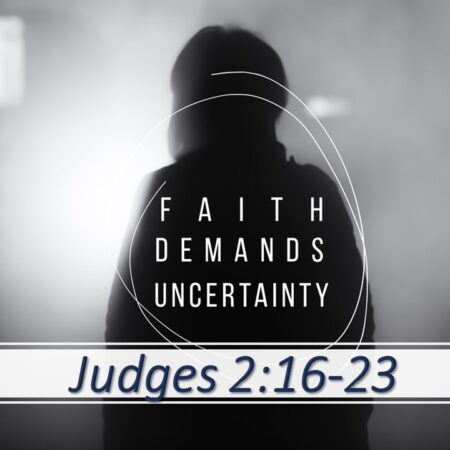Dallas Willard “The Allure of Gentleness”
Therefore; Christianity is false, since God is either not benevolent or not powerful, to which the presence of suffering testifies.
“God’s love is not a sentiment, but a well-reasoned devotion to the good or well-being of its objects. We have a terrible time understanding love, because we confuse it with desire. DESIRE AND LOVE ARE TWO UTTERLY DIFFERENT KINDS OF THINGS. Not only is desire not love; it is often OPPOSED to love.
Right action is the act of love, regardless of the desires of anyone involved.
Jeremy Bentham is his book: “Intro to the Principles of Morals and Legislation” writes:
“Nature has placed mankind under the governance of two sovereign masters, pain and pleasure. It is for them alone to point out what we ought to do, as well as to determine what we shall do. On the one hand the standard of right and wrong, on the other the chain of causes and effects, are fastened to their throne. They govern us in all we do, in all we say, in all we think; every effort we can make to throw off our subjection will serve but to demonstrate and confirm it. In words a man may pretend to abjure their empire; but in reality, he will remain subject to it all the while.”
Dallas Willard writes:
“It is only in the heat of pain and suffering, both mental and physical, that real human character is forged. One does not develop:
• courage without facing danger,
• patience without trials,
• wisdom without heart- and brain-racking puzzles,
• endurance without suffering
• temperance and honesty without temptations.
These are the very things we treasure most about people. Ask yourself if you would be willing to be devoid of all these virtues. If your answer is no, then don’t scorn the means of obtaining them.
The gold of human character is dug from torturous mines, but its dung and dirt are quite easily come by. And it should come as no surprise to us that in our time – the time of the great flight from pain, such virtues as these are conspicuous only by their absence.
I’m not saying that we should go looking for pain, so that we can develop character. This is not at all necessary. All we need to do is make an honest and thorough effort do discover what is right and wrong, good and bad, when we are convinced on these points, then simply go out and face life for what it is worth. There will be plenty of opportunity to develop character.”
C.S. Lewis in his book “The Problem of Pain” writes:
“It is a serious thing to live in a society of possible gods and goddesses, to remember that the dullest, most uninteresting person you talk to may one day be a creature which, if you saw it now, you would be strongly tempted to worship, or else horror and a corruption such as you now meet, if at all, only in a nightmare. All day long we are, in some degree, helping each other to one or the other of these destinations….
There are no ordinary people. You have never talked to a mere mortal. Nations, cultures, arts, civilizations – these are mortal, and their life is to ours as the life of a gnat. But it is immortals whom we joke with, work with, marry, snub, and exploit – immortal horrors or everlasting splendors……..
YOUR NEIGHBOR IS THE HOLIEST OBJECT PRESENTED TO YOUR SENSES.”
"C.S. Lewis" Tagged Sermons (Page 2)
“It is curious. In the Gospels, the Devil is doing all sorts of things. He’s making pigs run off cliffs, he’s possessing people and what not. And that doesn’t happen very much anymore.
It’s because he is smart.”
The reported asked: “So what’s he doing now?”
Scalia replied: “What he’s doing now is getting people not to believe in him or in God. He’s much more successful that way.” Antonin Scalia
In May 2016 the GUARDIAN, a highly respected British daily news, published this report:
“We live with an epidemic of anxiety. In 1980, 4 percent of Americans suffered a mental disorder associated with anxiety. Today half do. The trends in Britain are similar. A third of Britons will experience anxiety disorder at some stage in their life, with an explosion of reported anxiety among teenagers and young adults. Anxiety, depression, self-harm, attention deficit disorder and profound eating problems afflict our young as never before.
Anxiety has always been part of the human condition – as has depression and tendencies to self-harm – but never, it seems, on this scale. A number of trends appear to be colliding. This is an era when everyone is expected to find their personal route to happiness at the same time as the bonds of society, faith and community – tried and tested mechanisms to support wellbeing – are fraying. Teenagers in particular – fearful of missing out – are beset by a myriad of agonizing choices about how to achieve the good life with fewer social and psychological anchors to help them navigate their way. Who can blame them if they respond with an ever rising sense of anxiety, if not panic?”
C.S. Lewis in his book THE GREAT DIVORCE wrote these powerful words:
“There are only two kinds of people in the end: those who say to God, “Thy will be done,” and those to whom God says, in the end, “Thy will be done.”
C.S. Lewis in “THE SCREWTAPE LETTERS” writes:
“The safest road to hell is the gradual one – the gentle slope, soft underfoot, without sudden turnings, without milestones, without signposts… The long, dull monotonous years of middle-aged prosperity or middle-aged adversity are excellent campaigning weather (for the devil).
Paul comes full circle. Making his point once again that just as Isaac was supernaturally born AS A RESULT OF GOD’S PROMISE, so all Christians are “born-again” as a RESULT OF GOD’S PROMISE that all nations would be blessed through Abraham. (Genesis 22:18).
Not everybody in the church or outside the church likes that truth. Paul wants the people In Galatia to know that this introduces us to a spiritual conflict of major proportion.
Final thoughts
• We should expect to be persecuted by religious people.
It has been this way throughout history, beginning with Jesus himself. The religious leaders of His day opposed, mocked, condemned, and eventually executed the true Seed of Abraham.
The Judaizers made life and ministry difficult for Paul and all those who, like him, took a stand for the freedom that comes through grace.
During the Reformation, Popes and kings brutalized Protestants who took a stand on the doctrine of salvation by grace through faith.
In our own day, legalistic Christians who have never experienced the sweet liberation of grace can make the Christian life a miserable experience for true believers, overwhelming them with an endless, uncompromising list of dos and don’ts.
Therefore when it comes to law and grace, we have to get off the fence. We can’t fluctuate between rules and faith, mixing them in our approach to God. He won’t allow it.
• Man-made religion is incompatible with God’s grace.
Hagar and Ishmael symbolize human attempts to achieve what God only God can do. Just as Hagar and Ishmael were cast out of Abraham’s household, so must works-oriented religions and beliefs be removed from God’s family (Galatians 4:30).
Once we stop fence straggling, we will realize that free life can’t survive the structured demands of rule-centered living. Conversely, law keeping can’t maintain a grip on the truly liberated life. As Christians, we are called to a life of freedom.
Chuck Swindoll in his commentary ON ACTS:
“The Lord used the old covenant to prove that HEARING the word of God isn’t our primary problem. HEEDING the word of God is our constant challenge. With the inauguration of the new covenant, our Master has taken a different approach. Instead of standing before us to issue orders, He now lives within us to transform our minds (Romans 12:1-2) so that we begin to think His thoughts. As the Spirit gradually takes over, defeating our old, selfish, vain, foolish manner of life, we begin to cherish what God cherishes, make decisions according to His values, and view life from His eternal perspective.” Chuck Swindoll
In his essay on prayer, C.S. Lewis suggested that God treats new Christians with a special kind of tenderness, much as a parent does with a newborn. He quotes an experienced Christian: “I have seen many striking answers to prayer and more than one that I thought miraculous. But they usually come at the beginning before conversion, or soon after it. As the Christian life proceeds, they tend to be rarer. The refusals, too, are not only more frequent; they become more unmistakable, more emphatic.”
C.S. Lewis asks: “Does God then forsake just those who serve Him best? Well, He who served Him best of all said, near His tortured death, “Why hast thou forsaken me?” When God becomes man, that Man, of all others, is least comforted by God, at His greatest need. There is a mystery there which, even if I had the power, I might not have the courage to explore. Meanwhile, little people like you and me, if our prayers are sometimes granted, beyond all hope and probability, had better not draw hasty conclusions to our own advantage. If we were stronger, we might be less tenderly treated. If we were braver, we might be sent, with far less help, to defend far more desperate posts in the great battle.”
The philosopher Soren Kierkegaard, in his book “Philosophical Fragments”
“Christians remind me of schoolboys who want to look up the answers to their math problems in the back of the book rather than work them through.”
“Faith like Job’s cannot be shaken because it is the result of having been shaken.” Rabbi Abraham Heschel
Philip Yancey ins his book “DISAPPOINTMENT WITH GOD writes:
I found that for many people there is a large gap between what they expect from their Christian faith and what they actually experience. From a steady diet of books, sermons, and personal testimonies, all promising triumph and success, they learn to expect dramatic evidence of God working in their lives. If they do not see such evidence, they feel disappointment, betrayal and often guilt.” Philip Yancey
C.S. Lewis nails it when he writes in Mere Christianity:
“Either we give up trying to be good, or else we become very unhappy indeed. For, make no mistake: If you are really going to try to meet all the demands made on the natural self, it will not have enough left over to live on. The more you obey your conscience, the more your conscience will demand of you. And your natural self, which is thus being starved and hampered and worried at every turn, will get angrier. In the end, you will either give up trying to be good, or else become one of those people who, as they say, “live for others” but always in a discontented, grumbling way – always making a martyr of yourself. And once you have become that you will be a far greater pest to anyone who has to live with you than you would have been if you had remained frankly selfish.”
Ralph Waldo Emerson said:
“The God of the cannibals will be a cannibal, of the crusaders a crusader, and of the merchant, a merchant.”
C.S. Lewis under the title: A GRIEF OBSERVED makes this comment after grieving the death of his wife, Joy:
“What sort of a lover am I to think so much about my affliction and so much less about hers? Even the insane call, ‘Come back,’ is all for my own sake. I never even raised the question whether such a return, if it were possible, would be good for her. I want her back as an ingredient in the restoration of my past. Could I have wished her anything worse? Having got once through death, to come back and then, at some later date, have all her dying to do over again? They call Stephen the first martyr. Hadn’t Lazarus the rawer deal?”
R.C. Sproul comments about this verse:
“I will never obey the truth of God apart from the power, grace, and assistance of the Spirit. We are living in strange times in terms of how the church functions. We have been caught up with a fierce desire to find a way to relate to a culture that has been immunized to Christianity. We try to find new methods to reach the lost. The motivation is righteous, because we should have compassion for the lost. The danger comes when we ask the lost how they want to come into the kingdom of God, how they want to worship God, and how they want to hear God’s Word, and then tailor our method to their tastes and preferences. THAT IS FATAL. Sooner or later the church must come back to confidence in God’s way of doing God’s work, because the Bible does give us A BLUEPRINT FOR EVANGELISM.
…It is accomplished by the method of proclaiming the Word of God, which, as Peter says here, changes lives and purifies souls through the power of the Holy Spirit.
…We must never negotiate those fundamental, biblical methods of worship, preaching, evangelism, and spiritual growth.”
“Christ didn’t send us into the world as vacationers on a self-guided tour of a playground but as soldiers on a tour of duty in a battlefield. We’re not called to kick back, relax, take in the scenery, and wait for our Guide to take us home. We need to arm ourselves with spiritual armor to withstand the temptations of this world.” Chuck Swindoll
C.S. Lewis in his classic: Mere Christianity writes:
“The Son of God became a man to enable men to become sons of God. The present state of things is this. The two kinds of life are now not only different but actually opposed. The natural life in each of us is something self-centered, something that wants to be petted and admired, to take advantage of other lives, to exploit the whole universe. And especially it wants to be left to itself; to keep well away from anything better or stronger or higher than it, ANYTHING THAT MIGHT MAKE IT FEEL SMALL.
It is afraid of the light and air of the spiritual world, just as people who have been brought up to be dirty are afraid of a bath. And in a sense, it is quite right.
IT KNOWS THAT IF THE SPIRITUAL LIFE GETS HOLD OF IT, ALL ITS SELF-CENTEREDNESS AND SELF-WILL ARE GOING TO BE KILLED AND IT IS READY TO FIGHT TOOTH AND NAIL TO AVOID IT.”
Martyn Lloyd-Jones, in his excellent book ‘Joy Unspeakable” writes:
“Perhaps the greatest danger of all for Christian people is the danger of understanding the Scriptures in the light of their own experiences. We should NOT INTERPRET SCRIPTURE IN THE LIGHT OF OUR EXPERIENCES, but we should EXAMINE our experiences in the light of the teaching of the Scripture.”
Question of the week:
The Greek word “apologia” means to give an answer for the way you live. The best example of “apologia” is found in Acts 22:1-26:32. As you read and study the entire episode, extract some of the major points the Apostle Paul is making for his defense, and what would your personal answer be if questioned to give an answer for the way you live?
The church speaks a lot about Faith, Love, and Hope, but what does it look like?
• Faith is anchored in the past, in actual history events, as we look back to the Lord’s saving work on the cross.
• Love is anchored in the present, as we practice Christlike love toward the people around us.
• Hope is anchored in the future, in the trustworthy promises God gave us in His Word.
Romans 1:16 For I am not ashamed of the gospel, for it is the power of God for salvation to everyone who believes, to the Jew first and also to the Greek.
We all recognize this man named Apostle Paul. We have heard of him and read his incredible letters that are a part of the New Testament in the Bible. But what do we know about this man? We know that he was and still is an amazing teacher, a colossal figure of the first century world. No wonder some churches and Christian denominations have assigned sainthood to this humble yet greater than life man.
I would venture to say that no other person in the Bible, aside from Jesus Christ Himself, had a more profound influence on his world and ours than this man, the Apostle Paul.
He was a powerful witness of God’s faithfulness. But he was not always that witness of God’s faithfulness. We sometimes forget that all human being, no matter how great an impact they had during their lifetime on this earth, CAME FROM THE SAME PLACE; A WORLD OF SPIRITUAL BLINDNESS AND PHYSICAL BRUTALITY.
Saul had a great upbringing. His parents were Pharisees, members of the party most fervent in Jewish nationalism and strict in obedience of the Law of Moses. He was a Jew of Tarsus in Cilicia, a citizen of no insignificant city.
Saul grew up in a very controlled Jewish environment. Friendship’s with Gentiles was not allowed. Greek ideas were despised. His parents made sure that Saul could speak Greek, Latin and Aramaic, a language of Judea, a derivative of Hebrew.
Saul and his parents looked to Jerusalem as Islam looks to Mecca. Saul grew up in a home where he constantly was reminded that they are the People of Promise to whom alone the Living God had revealed His glory and His plans. By his 13th birthday, Saul had mastered Jewish history, the psalms and the prophets.
“A proud man is always looking down on things and people; and of course, as long as you are looking down, you cannot see something that is above you.” C.S. Lewis “Mere Christianity”










